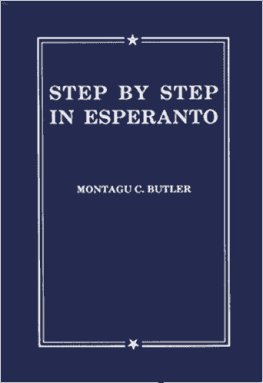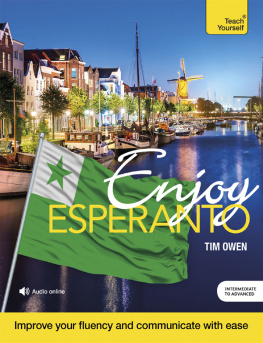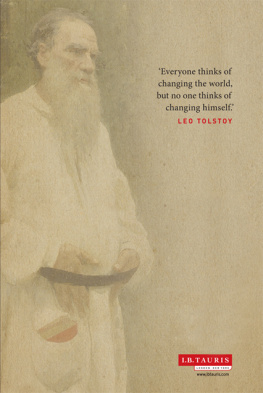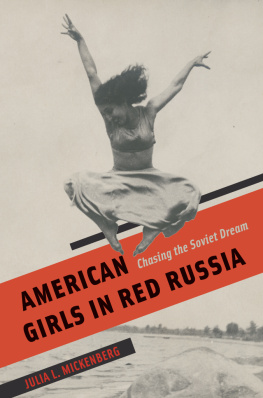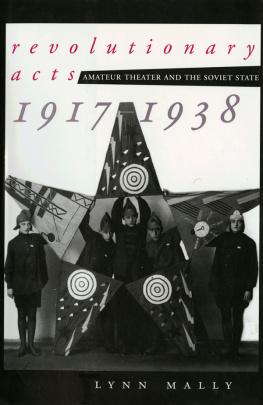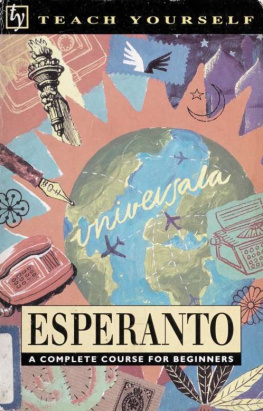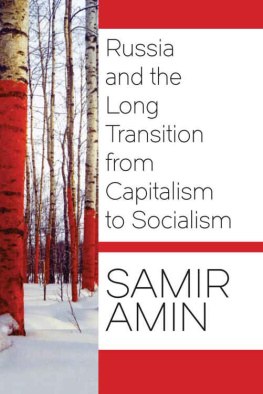
Esperanto and Languages of Internationalism in Revolutionary Russia
Esperanto and Languages of Internationalism in Revolutionary Russia
Brigid OKeeffe

BLOOMSBURY ACADEMIC
Bloomsbury Publishing Plc
50 Bedford Square, London, WC1B 3DP, UK
1385 Broadway, New York, NY 10018, USA
29 Earlsfort Terrace, Dublin 2, Ireland
BLOOMSBURY, BLOOMSBURY ACADEMIC and the Diana logo are trademarks of Bloomsbury Publishing Plc
First published in Great Britain 2021
Copyright Brigid OKeeffe, 2021
Brigid OKeeffe has asserted their right under the Copyright, Designs and Patents Act, 1988, to be identified as Author of this work.
For legal purposes the constitute an extension of this copyright page.
Cover Design: Ben Anslow
Cover image: Soviet propaganda poster for the Third International. The Communist International, abbreviated as Comintern and also known as the Third International (19191943), was an international communist organization initiated in Moscow during March 1919. ( Photo12 / Universal Images Group / Getty Images)
All rights reserved. No part of this publication may be reproduced or transmitted in any form or by any means, electronic or mechanical, including photocopying, recording, or any information storage or retrieval system, without prior permission in writing from the publishers.
Bloomsbury Publishing Plc does not have any control over, or responsibility for, any third-party websites referred to or in this book. All internet addresses given in this book were correct at the time of going to press. The author and publisher regret any inconvenience caused if addresses have changed or sites have ceased to exist, but can accept no responsibility for any such changes.
Every effort has been made to trace copyright holders and to obtain their permissions for the use of copyright material. The publisher apologizes for any errors or omissions and would be grateful if notified of any corrections that should be incorporated in future reprints or editions of this book.
A catalogue record for this book is available from the British Library.
Library of Congress Cataloging-in-Publication Data
Names: OKeeffe, Brigid, 1979 author.
Title: Esperanto and languages of internationalism in revolutionary Russia / Brigid OKeeffe.
Description: London ; New York : Bloomsbury Academic, 2021. |
Includes bibliographical references and index. |
Identifiers: LCCN 2020055613 (print) | LCCN 2020055614 (ebook) |
ISBN 9781350160651 (hardback) | ISBN 9781350160668 (ebook) |
ISBN 9781350160675 (epub)
Subjects: LCSH: EsperantoHistory. | EsperantoSocial aspects.
Classification: LCC PM8209 .O34 2021 (print) | LCC PM8209 (ebook) |
DDC 499/.9920947dc23
LC record available at https://lccn.loc.gov/2020055613
LC ebook record available at https://lccn.loc.gov/2020055614
ISBN: HB: 978-1-3501-6065-1
ePDF: 978-1-3501-6066-8
eBook: 978-1-3501-6067-5
To find out more about our authors and books visit www.bloomsbury.com and sign up for our newsletters.
For Zac, with love
Contents
My debt of gratitude spans the globe. I thank the many colleagues who have counseled me as I researched and wrote this book and who asked productive questions that led to a sharpening and refining of this project as it developed.
Several people have gone above and beyond to support me over the years. Yanni Kotsonis continues to be an ideal mentor, good friend, and indefatigable writer of letters. Jane Burbanks curiosity never fails to inspire me. Ive been fortunate to benefit from her ideas about this project as well as the worlds it inhabits and the borders it has crossed. Steve Norris is truly one of the kindest and wisest people I know. Thank you, Steve, for always being generous with your advice, time, support, and good humor. Your students and colleagues are most fortunate, and your friends are luckier still.
Enormous thanks are owed to Jessica Reinisch, who welcomed me to join the Reluctant Internationalists project team at Birkbeck College, University of London, as a visiting fellow in the summer of 2015. Rarely have I so enjoyed scholarly collaboration and conversation of this high caliber. I thank Jessica Reinisch, David Brydan, Johanna Conterio, Dora Vargha, Ana Antic, Jessica Pearson, and Francesca Piana. It is also thanks to the generosity of Jessica Reinisch and the Reluctant Internationalists team that our Languages of Internationalism Conference convened at Birkbeck College in May 2017. I am grateful to all the participants of that incredible conferencefor their superb papers, illuminating conversations, generous feedback, and the friendships made along the way.
Many colleagues have provided feedback and support of various kinds and without which Id be far worse off. I offer particular thanks to Gleb Albert, Rachel Applebaum, Betty Banks, Peter Blitstein, Maurice Casey, Katie David, Bruce Grant, Faith Hillis, Sean Guillory, Kelly Kolar, Steve Maddox, Dave Rainbow, Josh Sanborn, Ben Sawyer, Andrew Sloin, Nick Underwood, Kate Antonova, and Ted Weeks. Special thanks are owed to Faith Hillis, who read the full draft of the manuscript. Humphrey Tonkin and Javier Alcalde demonstrated eager support and collegiality even from the earliest days of this project. Ulrich Lens generously shared his expertise.
In the years I worked on this book, I enjoyed the support of two incredible chairs who prioritized protecting my writing time whenever I was granted leave from teaching and/or service. May all academics be fortunate enough to have colleagues and friends like Chris Ebert and Gunja SenGupta. I thank you both for the wisdom and compassion with which you approached being our departments chair. Jocelyn Wills and Lauren Mancia provided camaraderie, made time for walks and ice creams, and offered the precious feedback that one is sometimes fortunate to receive from colleagues who work in quite distant fields of research. Phil Napoli anchored the Brooklyn College History Department at a crucial moment and has gone above and beyond to help colleagues and students alike. Thank you, Phil, for your kindness and leadershipyou are the very best of Brooklyn College. My students remain an endless source of inspiration. I thank in particular two former students who served as my Kurz Undergraduate Research Fellowship assistants: Sergei Goz and Rabia Sirin. Sergei and Rabia, I will always be grateful and I cannot wait to see what you both do next. My thanks to Anna Law for giving my students this opportunity (and for sharing the most delicious cookies with the History Department on meeting days).
I am grateful for the generous financial and institutional support provided me by a variety of organizations. Without their crucial support, the research and writing of this book would simply not have been possible. PSC-CUNY Research Foundation grants funded trips to Russia and Poland. A Franklin Research Grant from the American Philosophical Society and a Tow Faculty Travel Fellowship generously funded research travel to Stanford and Moscow. A Whiting Fellowship afforded me time off from teaching so that I could travel to archives and begin writing. A Wolfe Fellowship could not have arrived at a better time in my career. It is thanks to the Ethyle R. Wolfe Institute for Humanities at Brooklyn College that I enjoyed a full academic year to devote almost solely to writinga rare and precious opportunity in my corner of academia. The Advanced Research Collaborative at the CUNY Graduate Center welcomed me as a Distinguished CUNY Fellow in the fall of 2019. Here, I enjoyed the camaraderie of fellow writers from CUNY and elsewhere in a magical, teaching-free semester of writing and intellectual exchange. I offer special thanks to Donald Robothamone could not have asked for a wiser or more welcoming head of the Advanced Research Collaborative. As a critical stage of writing this book, the Jordan Center for the Advanced Study of Russia at New York University welcomed me for a year as a writer in residence. I thank all the wonderful colleagues who make the Jordan Center such a transformative and delightful space in which to discuss research and debate ideas. The library privileges that the Jordan Center extended to me spared me no end of headache and frustration. On my home campus, the librarians at Brooklyn Colleges interlibrary loan office have heroically hunted down all manner of books and articles that CUNYwracked for too many years now by immoral austerity budgetscannot afford to house in its own withered collections.
Next page

